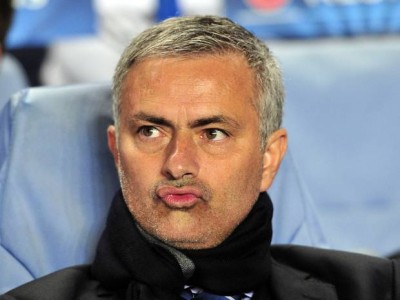AT the height of his managerial prowess, Jose Felix Mourinho was a cult figure. He was revered for his ability to read matches and win them. He was adored for his skills in spotting, wooing, motivating and keeping talents. He was beatified for his blunt, boyish irreverence in front of the microphone. Jose said things other coaches would rather not even think about.
And he said them with an audacity and wit that gave the media and the rest of us a thrill. Wherever he went, he picked up trophies like pebbles by the roadside – Portugal, England, Italy, Spain and England again. Last season, he won the English Premiership one more time with aplomb to confirm his status as “The Special One.”
But ever since, Mourinho has been anything but special. With Chelsea, he has lost more matches this term than he has won and currently languishes in unfamiliar territory somewhere near the bottom of the table – using the same players and the same philosophy that won him the English crown last term. Every other team now plays the Blues with great expectations and manages to grab points off them. Long gone is the fear of Stamford Bridge as the slaughter house of visiting team. So what has happened to make Mourinho lose his mojo? Where did he go wrong? What did he fail to do that he should have done? What are other coaches suddenly doing better?
And what can we learn from this and similar experiences about sport and life in general?
Concerning exactly what went wrong, the jury is still out. “Experts” are still poring through the files and records to see what they can find about how water entered the coconut. While they are at it, one conclusion seems perfectly logical even now: Success (or failure) is not the exclusive preserve of anyone. The levers of fortune are not entirely in our hands. Achievement is not always the result of hard work or competence. Put differently, there is a factor (call it X) which lies outside the control of men and which sometimes steps in to determine outcomes – irrespective of effort, input or logic.
Don’t get me wrong. Hard work, discipline, competence and all the other good habits are still the best known tools to get any mileage out of life. Without them, we are almost certain to fail. Indeed, the statement, “the harder you work the luckier you get”, is as true as ever. As the world grows in complexity, the range of skills required to survive and thrive increases exponentially. Whereas early humans probably needed little more than hunting and gathering skills to survive, it is difficult to imagine anyone get along today without a combination of social, literacy and digital skills.
Some call it luck. Others call it form. Yet others call it fortune, fate or grace. When it is on our side, our strivings look great and flawless. When it leaves our corner, even our best efforts look ordinary. Ask Tiger Woods, David Moyes, Rafael Nadal, Juventus FC or even Sepp Blatter. What ever happened to Tiger’s famous swings and putts? How come the amazing eagles and birdies suddenly left his game? What became of Nadal’s legendary athleticism and reach within the tennis courts? Why have the trophies thinned out?
How come the ultimate Capone of football’s Mafia finally got outdone in his peak?
If hard work, diligence and humility are the keys to success why do “good” men also experience setbacks? Is this proof that there are really no good people in the absolute sense of the word? Questions, questions…
If you’ve not experienced the X-Factor, you’ve probably not spent long enough doing what you do. It’s like the breeze – you can’t see or touch it but you can feel it. It’s part of life’s total experience. An African proverb popularized by the inimitable Chinua Achebe refers to it in a fascinating way: “Those whose kernels were cracked by benevolent spirits should not forget to be humble.” Trust us Africans to spiritualise everything! But not to worry, Jose, these spirits don’t stay forever. Sooner than later, they’ll be on their way.
Quitting without a good fight is for the faint-hearted. Be strong. Better to be fired trying than to run away when the going gets tough. What manner of manager would you have been without overcoming great adversity? What team is truly great which has not experienced defeat or fought back from the brink of disaster?
There are lessons you will learn from this experience about life, about football and about yourself that you wouldn’t have learnt in all your years as a super successful coach. They say a man never really succeeds until he has failed a few times. I agree.
GUARDIAN
END


Be the first to comment